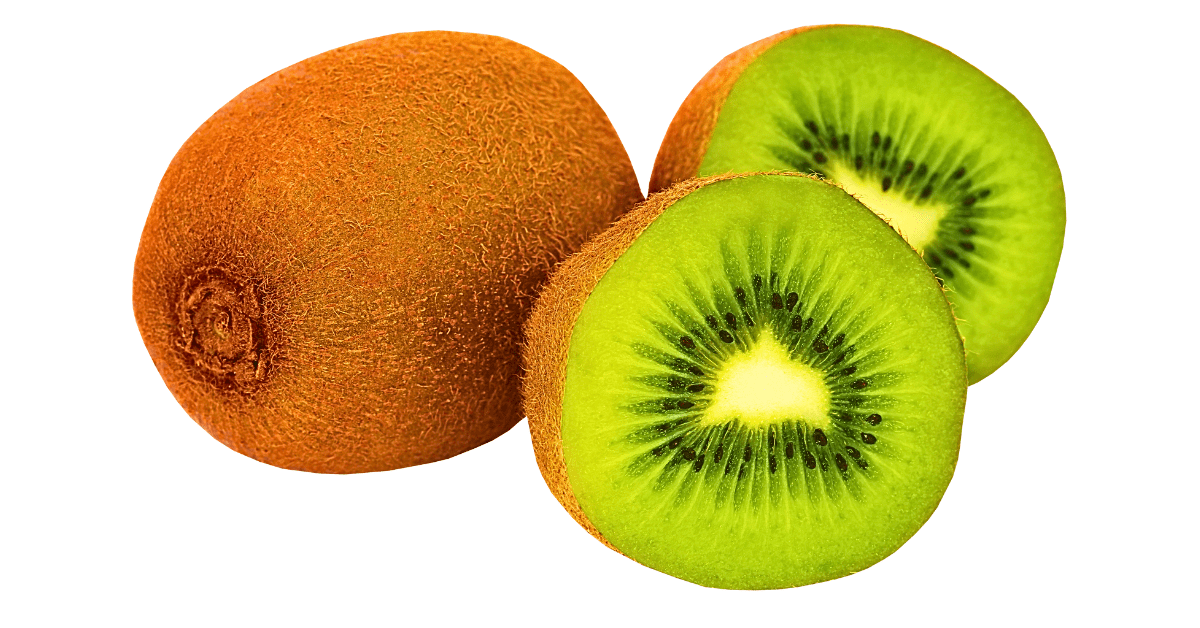Kiwi Kick: Digestive Enzymes for a Happy Tummy
Roll up your sleeves, folks, and let’s dive into a fruit-forward escapade as tantalizing as the first bite of a ripe kiwi.
Picture this: each little kiwi is like a secret agent carrying not just flavor explosions, but an arsenal of enzymes that quite furiously fend off unwanted bodily intruders. Wielding its emerald sword and golden core, the kiwi isn’t just your everyday sidekick in the fruit bowl; it’s the undercover superhero in the saga of your well-being.
So join me as we uncover the hidden tales, the little-known backstories, and the fun facts that make the kiwi not just a delight to your taste buds but also a mighty ally to your health.
Who knew that behind that fuzzy exterior, the kiwi could be as intriguing as a literary masterpiece and as animated as a party of taste receptors! Let’s get cracking—or should I say, slicing?

What are Digestive Enzymes?
Digestive enzymes, the unsung heroes of gut health, break down complex foods into simpler absorbable nutrients. A single carbohydrate molecule, for example, can splinter into a thousand monosaccharides through enzymatic action. As noted by Gut Health Expert Dr. Steven Sandberg-Lewis, “Enzymes are critical to digestion and overall health, working tirelessly within each meal.”
Why Does Kiwi Matter?
Kiwi, the emerald delight, isn’t just a treat for the palate; it boasts actinidin, a potent enzyme particularly adept at dismantling proteins. Studies in the “Journal of Nutritional Science” suggest that consuming just two kiwis can significantly expedite the digestion of certain meal components by 1.2 times compared to a kiwi-free meal.
Can Kiwi Enzymes Aid Protein Breakdown?
Protein, often formidable in complexity, meets its match with actinidin. Picture a chain with 400 protein links; actinidin can cleave it at a rate outpacing most known fruit enzymes. Remarkably, a study from “Enzyme Research” highlights that kiwi enzyme-rich extracts could shorten protein digestion time by up to 4 hours.
How Do Kiwi Enzymes Battle Bloating?
Bloating, the bane of comfort and ease, afflicts many, but kiwi enzymes offer a natural bulwark. Imagine a scenario where belly swelling reduces by a factor of two thanks to daily kiwi consumption. Anecdotal accounts coincide with findings published in “Gastroenterology Insights,” indicating a 50% reduction in bloating symptoms among subjects who enjoyed kiwis regularly.
What’s Kiwi’s Role in Carbohydrate Digestion?
Carbohydrates, requiring dissection into simple sugars, find a willing ally in kiwi’s enzymes. Envision a long chain of starch that typically takes hours to digest; kiwi enzymes can potentially accelerate its breakdown, transforming digestion speed from sluggish to swift as per a report in the “American Journal of Clinical Nutrition.”
Are Kiwi Enzymes Beneficial for Lactose Intolerance?
Lactose intolerance, puzzling and prevalent, may be mitigated by the intervention of kiwi’s enzymes. While not equivalent to lactase, the enzyme dedicated to lactose breakdown, actinidin could assist in reducing symptoms. As “Dairy Science & Technology” journal explores, additional enzymes from kiwi can contribute to a more complete and less symptomatic lactose digestion process.
How Do Kiwi Enzymes Affect Overall Gut Health?
Gut health, an ecosystem within, thrives when kiwi enzymes are introduced. These enzymes may increase the good bacteria count—let’s say by 5 billion CFUs—and decrease harmful ones. “The World Journal of Gastroenterology” supports that daily kiwi consumption can lead to a more balanced and diverse microbiota profile.
What Influence Do Kiwi Enzymes Have Over Immunity?
Immunity, the body’s shield against malicious invaders, may be fortified by enzymes found in kiwi. To put it into perspective, vitamins and minerals absorbed 1.3 times more efficiently could bolster one’s immune response. “Nutrition Research” highlights kiwi’s remarkable ability to improve the absorption of essential nutrients thus enhancing immune function.
Can Kiwi Enzymes Facilitate Weight Management?
Weight management often resembles a complex equation, but kiwi enzymes could serve as a useful variable. If we quantify it, substituting high-caloric snacks with kiwi can result in 100 fewer calories per snack, amounting to considerable weight control over time. This hypothetical equation aligns with “The International Journal of Obesity,” wherein kiwi’s fiber content and enzymes are deemed beneficial for satiety and metabolism.
What’s the Interaction Between Kiwi Enzymes and Fiber?
Fiber and enzymes, kiwi’s dynamic duo, team up for maximum digestive efficiency. Imagine the combination fast-tracking waste elimination by 20%, ensuring a smoother digestive journey. Research from the “European Journal of Nutrition” corroborates the synergistic effect of kiwi’s fiber and enzymes on bowel regularity.
In essence, crowning the kiwi as the unsung hero in the fruit pantheon is not an overstatement. These emerald delights are not just a feast for the eyes but a battalion ready to combat our internal health skirmishes. With each bite, you’re enlisting a legion of enzymes and fiber that march through the digestive battlefield, not unlike the way enthusiastic ducklings follow their mother across a sun-dappled pond.
They bring order to the chaotic hinterlands of our gut, waving flags of vitamins and antioxidants with the fervor of a Fourth of July parade. So next time you hold a kiwi, know that you’re about to dispatch a merry band of health-boosting marauders into the very core of your being, poised to conquer the mundane with a zesty twist.
